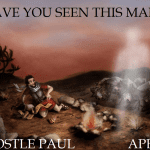I am delighted that news has broken about some intiatives that I’ve been involved with at Butler University. We have new Esports and gaming space in the works for next year, but something even bigger planned for the not too distant future. I dare to imagine that a suggestion that I made to our vice president for strategy and innovation Melissa Beckwith, to the effect that they’d be better putting a game store on the lower level of the parking garage than just having restaurants there, may have played a role in what is now planned. I hope to have more news about other gamification and education developments that are really exciting in the not too distant future. In the meantime, here’s the part of the article focused on things I’ve done and containing parts of an interview I gave with the article’s author, to whet your appetite and hopefully make you want to read the whole thing:
There is a much broader, cross-disciplinary effort being made toward integrating gaming into pedagogy across campus.
James McGrath, Professor of Religion and Classics, says: “There is real educational value in the mixing of gaming and learning because, I remember at one point in my life, learning was fun.”
McGrath says as educators, it is easy to fall into old habits such as talking at people, or doing “other boring things like that.” But, he says, there is a reason that students spend hours playing video games. These games give people the freedom to fail and try again.
“We often forget the need to incorporate failure in any educational experience that is ultimately going to lead to success and learning,” he says. “The only way to become good at something is to do it repeatedly, and fail, and if you get penalized for failing, you will never get the chance to ultimately get very good at it.”
Incorporating game-like elements, such as a point-based system, into higher education sparks learning, McGrath says. This is the gamification of higher education.
For McGrath, this started when he was teaching a course on the Bible. The second day of class, he knew he had to teach his students, essentially, a history lesson about why Bibles are different and where the table of contents comes from, for example. He decided to create a card game, Canon: The Card Game.
“People like to game,” McGrath says. “Faculty are starting to recognize the value of these types of things as part of culture and things we can harness for good in terms of learning outcomes. The fact that institutions such as our own are being more aware that people need to be well-rounded and that involves different things, even gaming, is a huge step toward true innovation.”
Do read the whole thing if this subject at all interests you! For those who may not have been following recent developments, Inside Higher Ed had a piece about Esports at universities.
Of related interest, there are a ocuple of calls for papers about gaming. One is for a special issue on science fiction and games, and the other call for papers about gaming is Playing Law: A Jurisprudence of Video Games and Virtual Realities. See too the article on how acting changes the brain, which explores the educational benefit of role-playing. And finally, here’s a review of a board game on a biblical theme:













